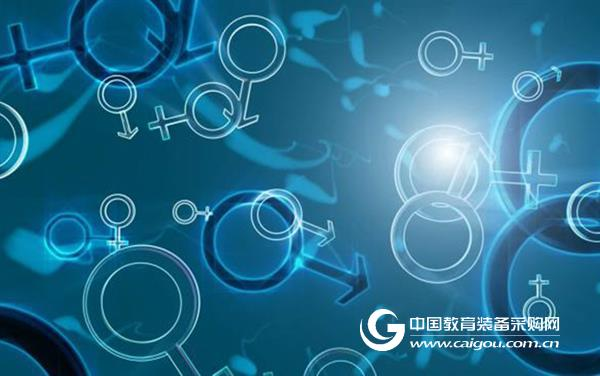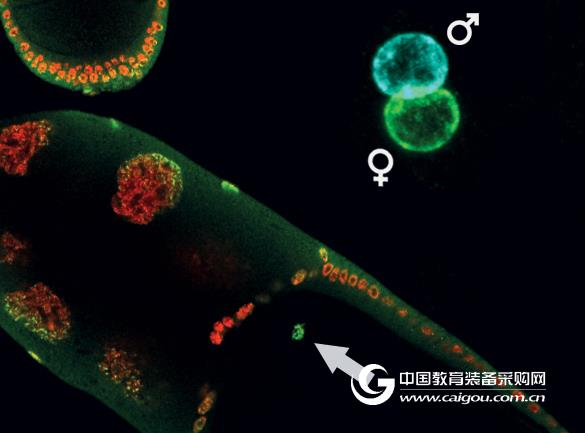Guide
Researchers at the Max Planck Institute in Germany have shown that the next generation not only inherits DNA itself during the transmission of life. Nicola Iovino's laboratory first described the biological consequences of this genetic information at the molecular level, and the new insights were published on Science on July 14.

We are not just the sum of genes. Epigenetic mechanisms regulated by environmental factors such as diet, disease, or lifestyle can regulate DNA by regulating gene switching. It has long been argued that if epigenetic modifications accumulate throughout life, it can be passed on to the next generation across the boundaries of generations.
Now, immunobiology and epigenetics researchers at the Max Planck Institute in Germany have obtained strong evidence that during the transmission of life, the next generation not only inherits the DNA itself, but also inherits the regulation of gene expression in the offspring. Epigenetic instructions. Nicola Iovino's laboratory first described the biological consequences of this genetic information, and the new insights were published on Science on July 14. Studies have shown that maternal epigenetic memory is critical to a new generation of development and survival.
What is epigenetic?
Humans have more than 250 different cell types. Their DNA base sequences are identical; however, for example, the liver and nerve cells look very different and function differently. The reason for this difference is a process called epigenetics. Epigenetic modifications can add markers to specific regions of DNA that are used to attract or block proteins that activate genes. Thus, these epigenetic modifications progressively produce active DNA and inactive DNA sequence patterns for each cell type.
Furthermore, contrary to the order of the fixed sequence in DNA, epigenetic markers can change during life and respond to the environment or lifestyle. For example, smoking alters the epigenetic composition of lung cells and ultimately leads to cancer. External stimuli such as stress, disease, or diet are also thought to be stored in the epigenetic memory of the cell.
Evidence that epigenetic markers can be inherited
It has long been believed that these epigenetic modifications are not inherited across generations. Scientists believe that during the development of sperm and egg cells, the epigenetic memory accumulated throughout life is completely eliminated. Just recently, several studies have sensationalized the scientific community by confirming that epigenetic markers are indeed inherited across generations. In 2015, Science proved that if the biochemical information of histones is changed during sperm formation in mice, the offspring are prone to birth defects and abnormal bone formation. Subsequently, in 2016, Developmental Cell published an article on epigenetic changes affecting placental development. Nature Genetics also has research articles demonstrating that poor diet affects offspring through epigenetics of eggs.
But so far, how accurately epigenetic markers are transmitted at the molecular level and what effect they have on offspring is still unknown. Nicola Iovino, a research author and author of the Max Planck Institute, said, “Since the emergence of epigenetics in the early 1990s, there have been signs of epigenetic information inherited across generations. For example, epidemiological studies show that grandfathers The food supply is significantly associated with the risk of diabetes and cardiovascular disease in their grandchildren. Since then, several reports have suggested epigenetic transmission in different organisms, but its molecular mechanisms are unknown. ""
Find epigenetic markers passed across generations
Iovino and his team used fruit flies to study how epigenetic modifications are passed from the mother to the embryo. They focus on an epigenetic modification called H3K27me3 found in humans. It alters the packaging of chromatin and is primarily associated with inhibition of gene expression.

Researchers at the Max Planck Institute found that H3K27me3 modifications that label chromatin DNA in maternal eggs persist in fertilized embryos, even if other epigenetic markers are erased. The first author of the paper, Fides Zenk, explained: "This suggests that the mother has passed its epigenetic markers to her offspring. But we are equally interested in whether these markers play an important role in the embryo."
Heritable epigenetic markers are important for embryogenesis
Therefore, these researchers used a variety of genetic tools to remove the H3K27me3-labeled enzyme in Drosophila, and found that embryos lacking H3K27me3 were unable to complete embryo formation during early development. Iovino said, "The results show that in reproduction, epigenetic information can not only be inherited across generations, but also important to the development of the embryo itself."
When they studied the embryos carefully, the team found that several important developmental genes that were shut down under normal conditions were turned on in embryos lacking H3K27me3. Zenk explains: "We suspect that premature activation of these genes during development disrupts embryogenesis and ultimately leads to embryonic death. In fact, it suggests that epigenetic information is necessary for processing and correctly transcribed the genetic code in the embryo."
Impact on human health
With these results, this research work has taken an important step forward and clearly shows the biological consequences of heritable epigenetic information. Not only does it provide evidence that epigenetic modifications in Drosophila can be passed on from generation to generation, but it also reveals that epigenetic markers inherited from maternal are a fine-tuning mechanism that controls gene activation during complex processes of early embryo development.
Researchers are convinced that their findings have far-reaching implications. Iovino explains: “Our research shows that we don’t just genetically inherit from our parents. It shows that we can also inherit the fine-tuning mechanisms of gene regulation that can be influenced by our environment and our individual lifestyle. Previously published studies—in some cases, acquired environmental adaptation results are sufficient to provide a new molecular basis for observations from the germ cell line to our offspring.†In addition, the destruction of epigenetic mechanisms may lead to cancer, diabetes, and self. Diseases such as immune diseases, these new findings may have an important impact on human health.
Shanghai Chuangsai Technology has excellent performance, interleukin cytokines, fetal bovine serum, electrophoresis equipment scientific instruments, raw material drug standards, chemical reagents, cell culture consumables, Shanghai Chuangsai, mass products special promotions, welcome to inquire!
Toner Cartridge For Brother,New Brother Compatible Toner,Tn2225 Black Toner Cartridge,Brand Brother Compatible Toner
jiangmen jinheng office equipment Co. Ltd. , https://www.jmjhtonercartridge.com